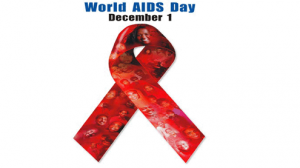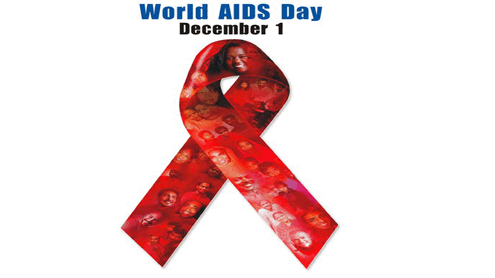 Jaloon Htaw : “I really hate those letters. I just don’t want to hear them. Even though I am surviving, it makes me feel terrible to hear the name of this disease,” tearfully exclaimed an AIDS patient named Ma Phyu.
Jaloon Htaw : “I really hate those letters. I just don’t want to hear them. Even though I am surviving, it makes me feel terrible to hear the name of this disease,” tearfully exclaimed an AIDS patient named Ma Phyu.
There are over 60 patients without parents or relatives, or who have been deported from Thailand, taking shelter in a location outside of Sangklaburi, Kanchanaburi Province, Thailand called the Safe House. Patients here suffer from various diagnoses including mental disorders, tuberculosis, and HIV/AIDS.
Safe House maintains a friendly environment. On a large space of land, with trees of plenty, patients and visitors are able to take walks and get fresh air. In the garden some patients weave and others help clean the area. Some listen to the radio and some play under and around the trees. The environment is perfectly suitable for treating those who suffer from mental disorders as well.
Among the many patients, six suffer from HIV/AIDS. All six patients transmitted HIV from their husbands who formerly visited prostitutes.
Ma Phyu’s story is heartbreaking. She received HIV from her husband who also had a history of physically abusing her. The physical abuse was so severe that Ma Phyu ran away and took refuge at the Safe House.
“My husband always beat me when he was drunk. After I could no longer tolerate the abuse, I fled, and through the help of women’s groups, I arrived here [at Safe House] and took shelter for a while. At the beginning of my stay, I did not know anything about the disease [HIV/AIDS],” explained Ma Phyu.
After a year, Ma Phyu’s husband found her and asked her to return home. Her concern for her children led her to return with her husband. Unfortunately, during the one year she had been away, her husband had visited prostitutes and transmitted HIV. He subsequently transmitted the virus to Ma Phyu.
“When he asked me to go back home, he promised not to beat me anymore. But he only kept that promise for a short time. He began to beat me again and I fled and rejoined the Safe House. At first I did not know I had contracted HIV/AIDS,” added Ma Phyu.
When Ma Phyu became noticeably sick, she visited the hospital and the health workers there checked her blood. Ma Phyu was shocked when she was told she had contracted the disease. She became so depressed that she thought about killing herself.
“But I had to think about my children. I can live my life for them. Although, I felt so ashamed, the encouragement of the doctor gave me strength to live, though I still feel depressed,” Ma Phyu explained quietly.
Other female HIV/AIDS patients have similar stories, transmitting the disease from their husbands. They also became depressed and disappointed when told they had contracted the disease. Like Ma Phyu, many felt that if they had not lived with their husbands and trusted them, they would never have contracted HIV.
Along Thailand-Burma border, there are thousands of migrant workers from Burma seeking work due to a desperate economic situation and human rights abuses in Burma. Many migrant workers have died because of HIV/AIDS. These HIV/AIDS related deaths have instigated an involvement by NGOs and communities in the border area to educate border area residents about the disease. NGO and community involvement has possibly enabled more HIV victims to survive longer.
The Pattanarak Foundation, a Thai NGO, has been actively involved in HIV/AIDS prevention programs and has encouraged migrant workers to get blood tests. As a result, prevention has improved gradually. A health education worker for the Pattanarak Foundation, Ko Lu Chaw, said there has been an increase in the number of migrant workers who are no longer afraid to get their blood checked.
Throughout Burma, there are a number of unidentified HIV/AIDS patients. The International Organization for Migration (IOM) is another NGO that has become involved in educating and treating HIV/AIDS patients in Mon State. One IOM health worker in Mon State explained that they provide not only Antiretroviral Treatment (ART) but also provide nutritional food for patients so they can walk and become active again.
He added, “the number of patients has not increased. Now, it is better because there has been a decrease in discrimination against HIV/AIDS patients.”
Ma Phyu still has hopes for her children’s futures. As a Buddhist she wishes for both her 13 and 11 year old boys to ordain in a monastery. She expects the fulfillment of a better next life [reincarnation] after her boys are ordained. Their ordination is her final hope for this life.
Ma Phyu also wished to remind other women and girls to protect themselves, “you should not suffer like me. Even before you marry someone, you need to do a blood test. Or if you divorce your husband and remarry, don’t forget to test his blood, too.”
A news report from Weekly Eleven, in Rangoon, stated that the HIV/AIDS transmission rate has decreased from 0.95% in 2000 to 0.61% in 2009. Yet, only 20,000 patients in Burma are able to receive ART while thousands suffer with no treatment.
According to Weekly Eleven, under the 3D fund (to prevent HIV/AIDS, Tuberculosis, and Malaria) program, the Global Fund allocated 106.5 million US dollars for a 2 year budget in Burma.

